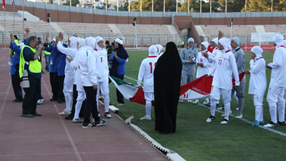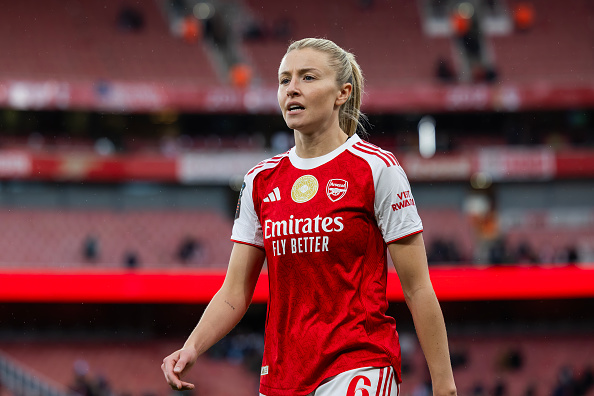
The best features, fun and footballing quizzes, straight to your inbox every week.
You are now subscribed
Your newsletter sign-up was successful
Want to add more newsletters?

Five times a week
FourFourTwo Daily
Fantastic football content straight to your inbox! From the latest transfer news, quizzes, videos, features and interviews with the biggest names in the game, plus lots more.

Once a week
...And it’s LIVE!
Sign up to our FREE live football newsletter, tracking all of the biggest games available to watch on the device of your choice. Never miss a kick-off!
Join the club
Get full access to premium articles, exclusive features and a growing list of member rewards.
Prince Ali Bin Al-Hussein of Jordan, whose presentation to football's law-making body IFAB six weeks ago saw the approval of the headscarf pending health and safety checks, said he was "shocked and disturbed" by the evidence presented on Thursday.
"If it is true, I would accept it, but I believe it was without foundation," he told reporters.
The IFAB, or International Football Association Board, comprises FIFA and the four British Home Associations.
Michel D'Hooghe of Belgium, the head of FIFA's medical committee, said he would only recommend to the extraordinary IFAB meeting on July 5 in Zurich that extra tests should be carried out on the headscarf which is crucial to millions of Muslim women playing the game all over the world.
Prince Ali, the youngest member of FIFA's executive committee, declined to comment when asked if he faced opposition from the committee's older, more conservative officials but there was no hiding his anger when he spoke on Friday.
"I was shocked when I heard about Dr D'Hooghe's press conference on Thursday. We covered all the issues raised including heat coming out of the head, breathable material, the neck issue.
"I was very disturbed by the comments he made. I am usually not very emotional but this is very important.
The best features, fun and footballing quizzes, straight to your inbox every week.
"There are women serving in combat zones across the world and many of them are wearing the headscarves so I am disturbed by this being used as an argument. All we are asking is for women to be allowed to play football.
"This affects many, many Muslim women. I hope this issue is being treated with the same respect and seriousness that other issues are, for example goal-line technology."
IFAB REVIEW
Although IFAB has approved the headscarf, pending further tests in March, the decision will be reviewed in July and FIFA's quartet on the law-making body can change between meetings.
Prince Ali's fear is that opponents of the hijab could sit on the July meeting and block approval of the headscarf because a law change needs a 6-2 majority from the board.
He accepted that further testing may be needed in the future but added: "I am hoping, at the very least, IFAB will allow a proper evaluation and that these players will be allowed to play in it on the field. If the medical committee and FIFA wants to monitor further, let them do it.
"Muslim women can use it at confederation level but they cannot, for example, use it at the highest level in the women's World Cup or the Olympic Games.
"And at any level there have been no reported cases of injuries in Asia and Africa, or anywhere in the world."
Prince Ali said independent institutes and designers from Netherlands and Canada had presented evidence to D'Hooghe and FIFA's chief medical officer Jiri Dvorak but when the designers were told what happened on Thursday they were equally shocked.
"They asked us what on earth he [D'Hooghe] was talking about," he said.
 Join The Club
Join The Club










